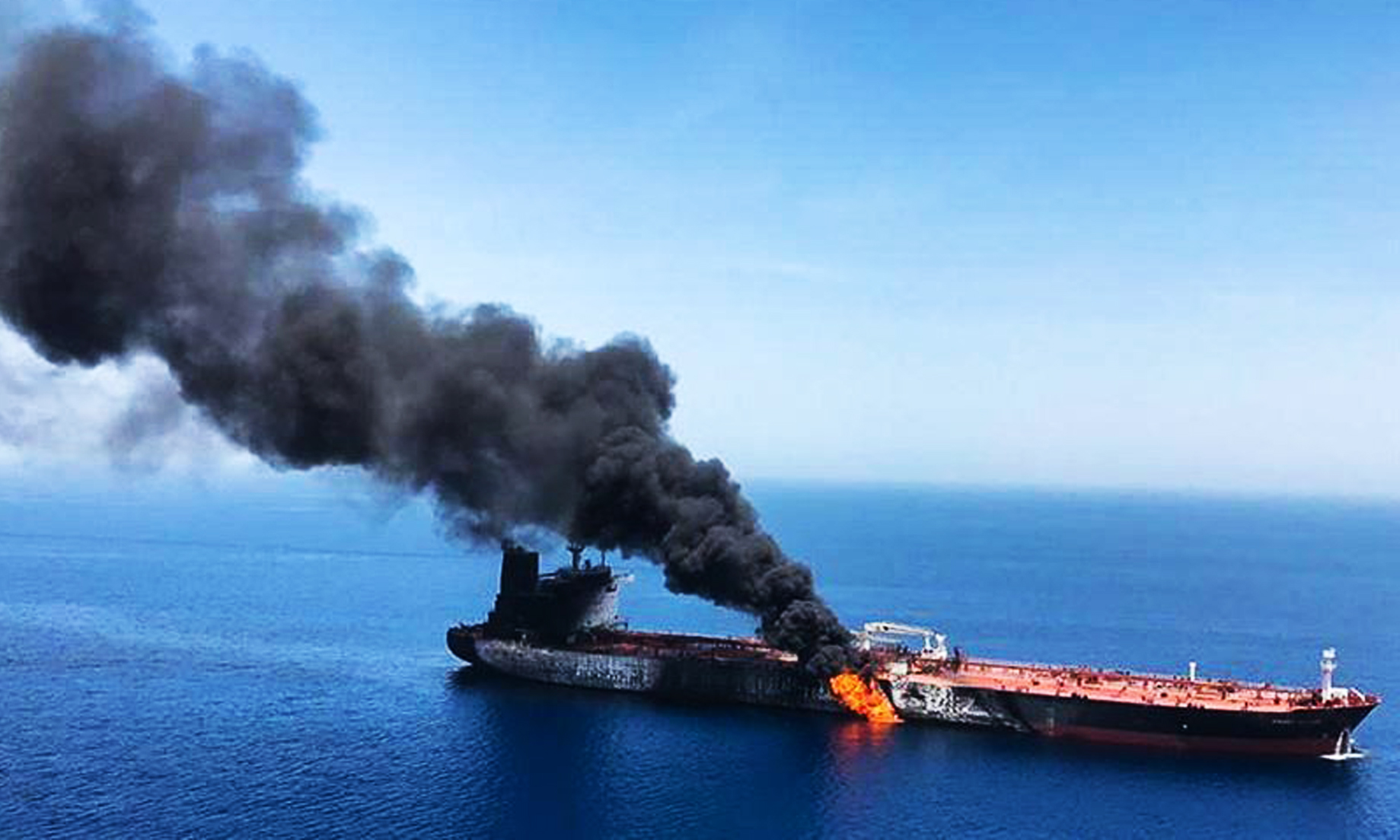TEHRAN, June 14 (NNN-KYODO) – Iran’s Deputy Ambassador to the United Nations on Thursday brushed aside U.S. claims that Tehran is responsible for attacks on two oil tankers near the strategically important Strait of Hormuz.
“Strongly we are rejecting any accusation of Iran,” Eshagh Al Habib told a small group of reporters shortly after U.S. Secretary of State Mike Pompeo blamed Tehran for the attacks.

“Definitely, those that accuse Iran have the main role in creating those incidents and it could be the United States itself,” Habib said.
Apparently with Israel and Saudi Arabia in mind, the Iranian envoy also said there are two specific nations that “are looking for more tensions” in the Persian Gulf region and that the United States is a staunch backer of them.
He said the attacks on the two tankers, including one operated by a Tokyo-based company, took place as Japan’s Prime Minister Shinzo Abe and Iran’s Supreme Leader Ayatollah Ali Khamenei were meeting. Abe was making a two-day visit to the country, marking the first time since 1978 that a Japanese prime minister had done so.
“This incident happened at the same, exactly at the same time that the prime minister of Japan was in Iran and meeting our leaders, and it shows that these are orders that are behind this incident, and the previous one,” he said.
He was referring to a May 12 incident in the Gulf of Oman when four commercial ships were damaged.
He described Abe’s visit, in which the Japanese leader hoped to broker dialogue between Washington and Tehran amid escalating tensions in the Middle East, as a “very successful one,” despite Iran saying Thursday it will not negotiate with the United States.
“There have been always very good relations between Iran and Japan, and we respect a lot the Japanese people and government,” he added.
Earlier in the day, U.N. Secretary General Antonio Guteress strongly condemned the attacks on the two tankers.
“I note with deep concern this morning’s security incident in the Strait of Hormuz. I strongly condemn any attack against civilian vessels,” he told a U.N. Security Council meeting on cooperation between the United Nations and the League of Arab States.
“Facts must be established, and responsibilities clarified,” he said, adding, “If there is something the world cannot afford, it is a major confrontation in the Gulf region.”
During the same meeting, Acting U.S. Ambassador to the United Nations Jonathan Cohen decried the attacks as an “unacceptable” act.
“It’s unacceptable for any party to attack commercial shipping and today’s attacks on ships in the Gulf of Oman raise very serious concerns,” he said.
“The U.S. government is providing assistance and will continue to assess the situation,” Cohen added.
The United States called a meeting of the U.N. Security Council later in the day to discuss the tanker incident behind closed doors.
Although no statement was issued, there was a common condemnation of the incident by all 15 members, according to Kuwait’s Ambassador Mansour Al-Otaibi, who is the rotating president of the month.
The “whole council members condemned what happened,” he said, while stressing that he was not speaking as council president but in his national capacity.
The council would like to see an independent investigation carried out to better determine who was behind the attack, he said, although it was unclear who would lead such an investigation.
NNN-Kyodo






